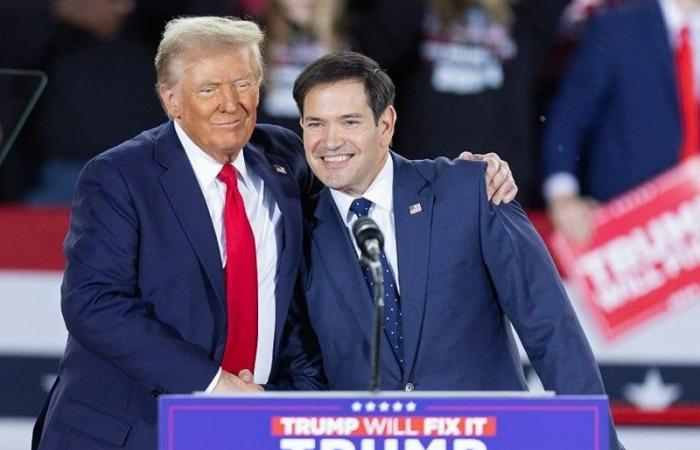The President-elect of the United States, Donald Trump, announced on Wednesday the nomination of Marco Rubio, senator from Florida and leading figure of the Republican Party, to the key post of Secretary of State.
Trump also chose Tulsi Gabbard, a former Democratic congresswoman, to serve as director of national intelligence, while Matt Gaetz will inherit the post of Justice Secretary.
“It is my great honor to announce that Senator Marco Rubio of Florida has been nominated as Secretary of State of the United States. Marco is a highly respected leader and a very powerful voice for freedom,” Trump said in a statement.
He added that Rubio, 53, will be a “a staunch defender of our nation, a true friend to our allies, and a courageous warrior who will never back down from our adversaries.”
Marco Rubio has several years of experience in foreign policy and national security, and has nearly 10 years as a member of the Senate, where he has served since 2015.
In the upper house of Congress, Rubio notably serves on the powerful Foreign Affairs Committee, which plays a leading role in United States foreign policy through the authorization and supervision of foreign aid programs and sales of weapons, but also in the choice of Washington’s allies.
Rubio also serves as Republican leader on the Intelligence Committee, an equally powerful body that oversees intelligence agencies and offices and provides information and analysis to U.S. leaders.
Son of Cuban immigrants, the new face of American diplomacy made his debut in politics in the late 90s, being elected member of the local government of the city of West Miami in Florida. In the early 2000s, he was elected to the Florida House of Representatives, where he became president between 2006 and 2008.
In 2015, Rubio ran for the Republican Party’s 2016 presidential nomination, but lost the primary to Donald Trump, whom he supported in his successful presidential campaign, and continued to consistently support during his tenure in office. the White House.
Throughout his political career, Rubio has endorsed the Republican Party’s positions on issues of immigration and the environment, even becoming one of the proponents of a hard line against China and Iran and its proxies.
On the European front, if the new chief diplomat of the United States is skeptical about the need to maintain the level of financial and military aid to Ukraine, he nonetheless remains a fervent supporter of maintaining the alliance with NATO.
During Trump’s first presidency, Rubio had an undeniable influence on US policy towards Latin America, supporting hardline positions against Nicaragua, Venezuela and Cuba.






